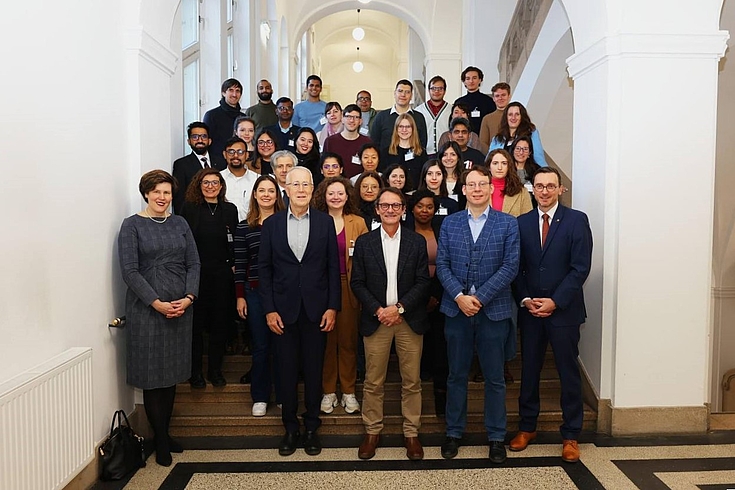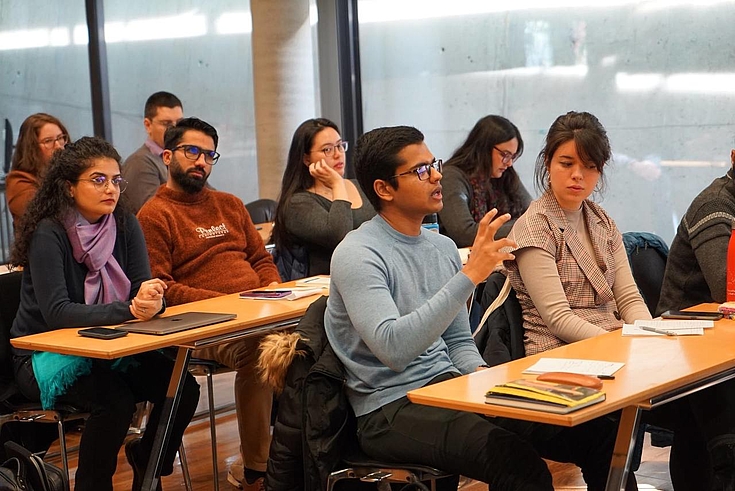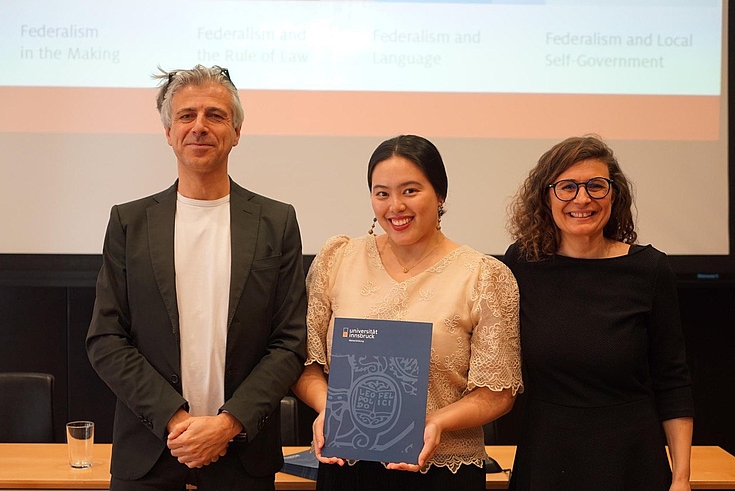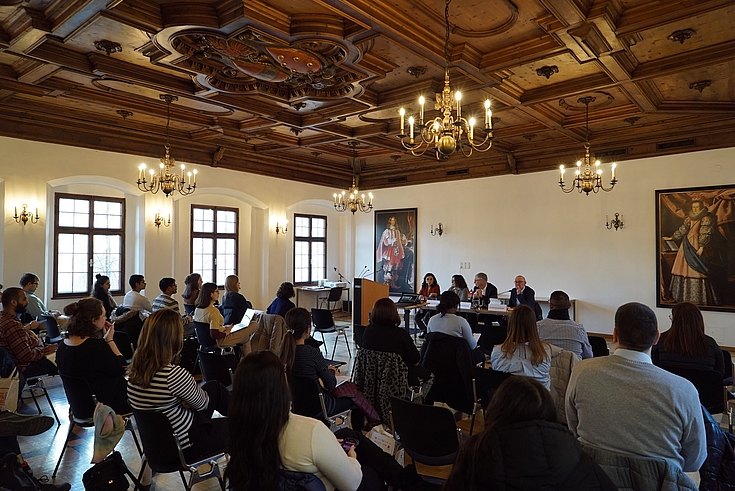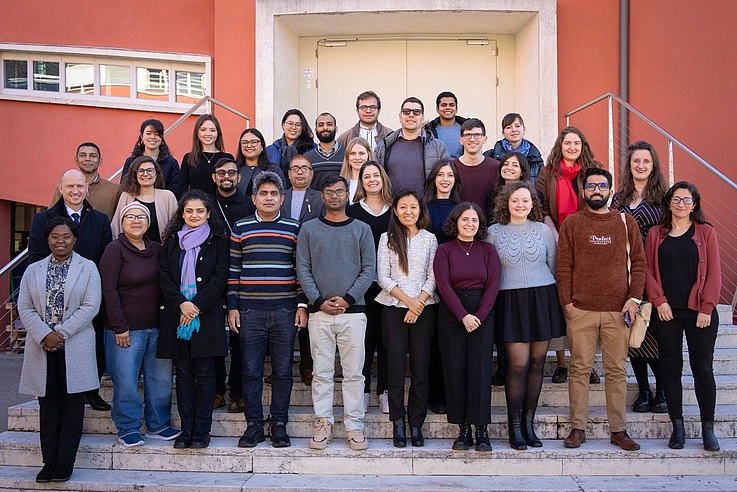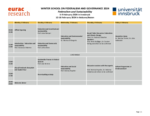Federalism and Sustainability
PH partner engages in program exploring federalism vis-à-vis sustainability challenges
EURAC
The primary aim is for the participant to gain wider and more in-depth understanding of multilevel systems, as these relate to the principles of sustainability, through enhanced training on the theoretical and practical aspects of federalism and multilevel governance. The program examined topics by combining theoretical knowledge and relevant case studies, featuring presentations by more than thirty esteemed speakers representing various sectors including public administration, political science, environmental conservation, and economic policy.
The Winter School's worldwide learning environment features top experts and academics teaching courses and leading workshops on federalism and its difficulties from all over the world. Participants had the chance to dialogue with professors and practitioners alike, and learn from authorities in their respective fields, through a variety of lectures, particularly from the perspectives of the legal and political sciences. Upon program completion, the Philippine representative joins the Pimentel Institute for Leadership and Governance (PILG) core group, harnessing an enhanced understanding of federalism to foster awareness and comprehension of the public on its key aspects while advocating a government system that best suits the Philippine context.
How does federalism impact sustainability policies at different government levels? What are the challenges and opportunities of integrating sustainability into federal systems? Coming from different countries spread across Europe, Latin America, Asia and Africa, participants of this “Federalism and Sustainability” program sought to understand the relationship between federalism and sustainability. The range of interactive sessions provided them with the opportunity to contribute their knowledge and experience, and for deliberation with experts on multilevel governance throughout the interactive learning sessions and engaging discussions with distinguished academics and renowned specialists in the respective disciplines.
EURAC
They also examined the implementation of the United Nations's Sustainable Development Goals (SDG’s) in multilevel systems, analysed the effects of decentralisation on sustainability, identified key areas where multilevel systems can address sustainability issues, and assessed the impact of asymmetries on sustainability. Woven into the program were roundtable discussions on federalism and climate change, followed by discussion sessions on different SDG’s. Visits to the Innsbruck City Hall and to the South Tyrolean Provincial Council were also organised.
Experts analysed the topic of sustainability from both legal and political perspectives, discussing its implications for federalism and regionalism. They explored various facets of sustainability including environmental concerns, societal issues, and democratic principles. Additionally, participants learned about current sustainability challenges faced by nations across the globe, including Europe, Asia, Africa, and America.
The Winter School on Federalism and Governance is a two-week international postgraduate program on federalism, regionalism and multilevel governance. Organised under the patronage of the Congress of Local and Regional Authorities of the Council of Europe, it is a shared project of the Eurac Research’s Institute for Comparative Federalism and the University of Innsbruck Faculty of Law and Faculty of Social and Political Sciences. The Council of Europe Secretary General has been hosting the program since its inaugural edition in 2010. Using an interdisciplinary and comparative method, the program delves into how federalism can enhance decision-making that is multilayered, cohesive, and inclusive of diverse perspectives.
The Winter School program usually takes place for one week each in Innsbruck, Austria and in Bolzano, Italy, both of which are described as interesting international study environments. Conducted in English, the program’s usual activities include interactive sessions including lectures by distinguished academics, interactive workshops, question-and-answer sessions, discussions and case studies with renowned specialists in the specific fields, and study visits to political institutions.
The participants, whom the program assumes are eager to increase their knowledge of federalism through an interdisciplinary and comparative approach, usually comprise young researchers and academics; postdocs, postgraduate and graduate students; civil servants from local, regional or national governments; and, employees of non-governmental/international organisations.
EURAC
Atty. Dominique P. Gana-Pabillore, the lone Philippine representative in this year’s program, is a board member of the Pimentel institute for Leadership and Governance (PILG), one of the Hanns Seidel Foundation’s project partners in the Philippines. She expressed gratitude for the meaningful connections made with fellow participants, who were mostly practitioners, academics, and civil servants, and the valuable knowledge gained on federalism, decentralisation, and sustainability, highlighting the potential impact on her work in the PILG, and its projects and initiatives.
Atty. Gana-Pabillore acknowledged how the program enhanced her understanding of federalism globally, facilitated valuable networking opportunities, and enriched her knowledge on federalism, decentralisation, and sustainability. Sharing her learning experience, she remarked, “As I’ve learned, there is no ‘one size fits all’ solution for federalism. Every country with a federal system faces the usual issues and difficulties that arise with such a government structure, but must also deal with their own specific concerns in relation to their country’s historical background, culture and traditions.”
“However,” she continued, “during this program, the speakers reminded us to always ask HOW and WHY and to question them and the other participants as well in order to broaden and expand our own views and perspectives. We were asked to go beyond our own experiences, put ourselves in the shoes of the other participants and to also think outside the box.” After completing the program, she will become part of the core group of experts formed by the PILG. With a deeper understanding of federalism, these core group members can assist in spreading key features and principles of federalism, enhancing public awareness and comprehension of this governance model tailored to the Philippine context.
“…during this program, the speakers reminded us to always ask HOW and WHY and to question them and the other participants as well in order to broaden and expand our own views and perspectives. We were asked to go beyond our own experiences, put ourselves in the shoes of the other participants and to also think outside the box.”
Atty. Dominique P. Gana-Pabillore, Board Member, Pimentel Institute for Leadership and Governance
EURAC
Leveraging the connections forged during the program, Atty. Gana-Pabillore plans to collaborate with fellow participants from 18 countries as resource persons and local experts, especially those with comparable cultural backgrounds in Asia, to support future federalism projects by PILG in the Philippines. She affirmed that the acquired knowledge will enhance her contributions as a resource speaker in PILG projects concerning federalism's implications in the Philippine setting. Additionally, she plans to share this knowledge with the PILG team to enrich their regular lecture series on federalism and the Philippines for youth and student leaders, particularly in Mindanao.
The participation of Atty. Gana-Pabillore in this Winter School Federalism and Governance Program 2024 Edition was made possible through the Hanns Seidel Foundation’s (HSF) support in partnership with the Pimentel Institute for Leadership and Governance (PILG) as part of their project “Increasing Awareness of the General Public on Federalism and Decentralisation.” To date, this partnership, which began in 2016, has supported the participation of a total of thirteen delegates from the Philippines in the EURAC Research Winter School on Federalism and Governance Editions from 2017 to 2020 and 2023 to 2024 held in Austria and in Italy; and, in 2022, online.
Photo Gallery
Links
About Winter School (https://winterschool.eurac.edu/about/winter-school/)
Winter School’s Facebook posts (https://www.facebook.com/winterschoolfederalism)
Download

